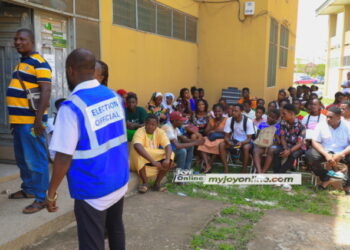Ghana’s ability to fight corruption is being “severely weakened” by chronic underfunding of its key accountability institutions, according to the 2025 IMF Governance Diagnostic Report that warns the country’s anti-corruption architecture is approaching a breaking point.
The report conducted in September 2023 according to the IMF reveals that major institutions, including the Office of the Special Prosecutor (OSP), the Economic and Organised Crime Office (EOCO) and the Commission on Human Rights and Administrative Justice (CHRAJ), routinely receive less than half of the budget approved for them by Parliament.
As a result, the agencies responsible for investigating corruption, prosecuting financial crimes, safeguarding public funds and protecting whistleblowers are operating without the basic resources needed to function.
The report points out that although budgetary allocations are approved annually, actual releases from the Ministry of Finance fall far below those figures — leaving institutions unable to recruit staff, maintain critical investigations, upgrade technology or conduct specialised prosecutions.
Even the OSP, established to lead high-profile corruption cases, must obtain “clearance” from the Ministry of Finance before hiring or paying its own staff, a situation the IMF describes as incompatible with operational independence.
Beyond the funding crisis, the IMF warns that Ghana’s anti-corruption framework is structurally vulnerable, describing it as “fragmented, overlapping and exposed to political influence.” This deepens the systemic weaknesses caused by underfunding and further undermines the fight against corruption.
The report identifies harmful overlaps among the OSP, EOCO and CHRAJ — three agencies that simultaneously investigate corruption-related offences but lack clear coordination protocols.
This duplication, the IMF argues, creates confusion, delays cases and allows political actors to exploit institutional gaps.
The Attorney-General’s constitutional power over all prosecutions also weakens the independence of agencies like EOCO and OSP, whose prosecutorial autonomy is more symbolic than guaranteed.
The IMF cites recent examples, including the resignation of the first Special Prosecutor and the removal of the Auditor-General, as evidence of political pressure.
Despite progress in digitalisation, access-to-information reforms and upgraded procurement laws, the IMF said these gains are overshadowed by deep structural weaknesses. Anti-corruption institutions lack the independence, funding and legal clarity to enforce the very laws Ghana has invested in.
ŋWithout decisive reforms — including guaranteed financing, mandate clarification, and insulation from political interference — the IMF warns that corruption will continue to drain public revenue, weaken investor confidence and undermine Ghana’s economic recovery.







